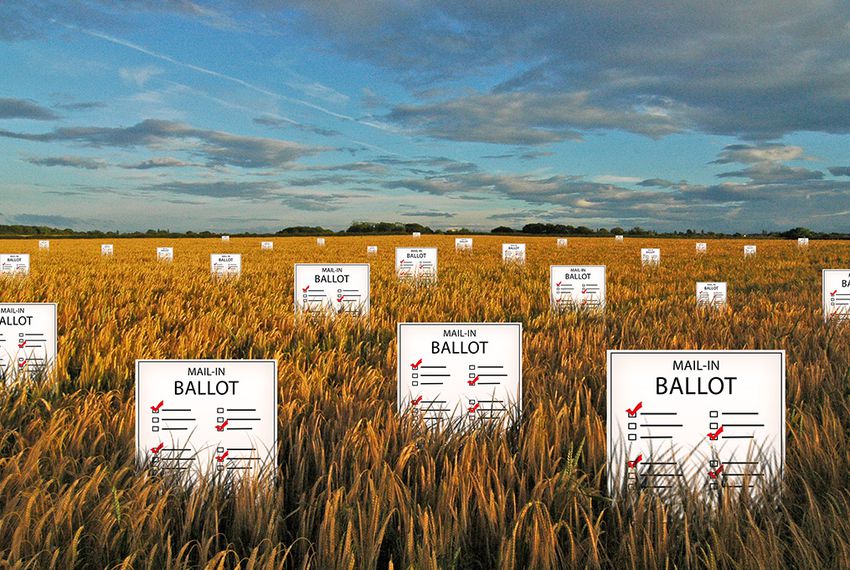
by admin | Feb 8, 2021 | Elections, News and Updates
Though the November 2020 election is over and the results a foregone conclusion, the pervasive distrust of the U.S. elections system continues to linger. After all, when voters are given $25 gift cards in exchange for their votes like they were in Nevada, a judge is caught taking bribes to stuff the ballot box in Philadelphia, and a woman is hired in California to run voter registration drives and is caught forging signatures and changing their party affiliations, there should be a consensus that voter fraud is real.
Something needs to be done. And though Arizona may not be the worst offender, our state still has plenty to do to improve our elections and rebuild trust.
The Arizona legislature has convened once again, and Republican lawmakers have seemed to hear their voters loud and clear – address election integrity and address it now. Dozens of bills have been introduced, attacking reform from different angles and reacting to the frustrations of Arizona voters in November. With so many competing ideas, it is necessary to prioritize reforms that offer the greatest security to our election system and are feasible to implement.
For the legislature to claim victory on election integrity for the 2021 legislative session, they must focus their reforms in four key areas:
- Maintain Clean and Current Voter Rolls
Once fraud is in the election system, it is extremely difficult to prove and root out. Ensuring voter rolls only contain current, legal residents who are qualified to vote is critically important. Currently, there is no standardization across all 15 Arizona counties to scrub voter lists of deceased persons, citizens who have changed residency, or duplicative voter files. Equally important is an independent audit of this practice to ensure it is actually being done. Though legislators may trust every county recorder to follow the law, good policy ensures verification.
- Protect Mail-In Ballots
Mail-in voting is inherently more vulnerable to mistake, mishap, and mischief. Due to the delay and distance of a voter receiving their ballot and the tabulation of that ballot, extra security measures are necessary to protect this method of voting.
No doubt, early mail-in voting is popular in Arizona and efforts to eliminate the system are impractical and unnecessary. However, additional verification for early mail-in ballots is a good idea and lawmakers should focus reform in this area.
- Ensure Legislative Oversight
Election integrity is a matter of statewide concern and therefore is a legislative concern. Many Arizona voters were understandably frustrated at how seemingly little power the legislature had to intervene and require an audit of the 2020 election results.
Not only should election procedures be standardized across all counties in Arizona, but the legislature needs to be empowered to oversee election practices, results, and compliance.
- Prohibit Outside Influence
In the past, election officers have been permitted to use internal or external resources to sway the outcome of an election. These practices aren’t illegal, but they should be. Whether that is using taxpayer money to target voter registration activities, using third party lists to target potential voters, or accepting money from outside organizations with a political agenda, this must be eliminated. Curing voter distrust includes ensuring government can’t put their thumb on the scale of election results.
Election integrity is a top priority of Republicans at the legislature this year. But success will not be measured by the volume of election integrity bills that get passed, but by their quality. Bills concentrated in each of these areas of reform will help improve the credibility, transparency, and security of our elections.

by admin | Feb 1, 2021 | News and Updates, Tax
Year after year, legislators in the Arizona House and Senate introduce bills advertised as jobs producers and the solution to affordable housing: tax credits for banks, investors, and insurance companies to finance development projects. Because bad ideas never die as long as there are lobbyists hired to push them, this year the Low Income Housing Tax Credit (LIHTC) bill is back again as HB2562 sponsored by Representative Regina Cobb and SB1327 sponsored by Senator David Gowan.
The Arizona program allows for $8 Million a year of tax credits that can be matched with the subsidies offered through the federal program. The bills mirror the federal LIHTC percentages and can be carried over for 5 years. Banks sell these tax credits to investors who make up a pool to finance the project. This mechanism is supported by layers of middlemen who add to the cost of building these projects. As a result, the program is lucrative for investors, very costly for the taxpayers, and results in fewer units being produced.
The LIHTC program also lacks transparency and oversight making it fraught with fraud. In 2018, Wells Fargo made an over $2 Billion dollar settlement with the Department of Justice for purported nation-wide collusion to devalue these tax credits. Hundreds of millions of dollars have been siphoned from the program which led to a report by the Office of Government Accountability, noting poor oversight and wide variations in per-unit building costs.
There are many legitimate ways the legislature can address affordable housing that don’t include swampy D.C handouts to banks, investors, and insurance companies. Here are three:
- Housing Choice Vouchers (HCVs) which are tenant-based subsidies, not developer-based ones. Instead of incentivizing profiteers to supply housing – HCVs empower individuals and families to access housing in places they desire to live.
This approach allows low-income families to move to higher income places which often gives them access to better jobs and school districts and affords children of low-income families’ greater opportunities to succeed. Because the LIHTC programs provide greater incentives for building in designated areas of greater poverty, it has the direct effect of actually concentrating poverty and segregating poor people.
- Direct appropriation of the Arizona Housing Trust Fund. The appropriation process forces lawmakers to set their priorities based upon available revenues and balance their decisions with the tradeoffs presented. The appropriations process is more transparent as it is revisited each year (unlike tax credit programs) and the body responds to environmental changes in the state and shifting priorities. Projects are chosen by representatives who know the needs within their districts instead of developers who decide based upon the potential for maximized profits. Additionally, development with public monies goes through an open bidding process, ensuring taxpayers get the best bang for their buck.
- Address the underlying tax and regulatory structure responsible for nearly a third of the cost of development. A study conducted by the National Association of Homebuilders concluded that 32 percent of the costs associated with building housing are attributable to regulations, mostly land-use and development hurdles by local governments. In Arizona, the state allows the cities to charge a residential rental tax and gives them broad authorities to regulate development. The fees, extensive permitting processes, and slow timelines add cost to development that is passed on to the consumer. No tax credit program can fix this problem.
The expansion of this 35-year-old failed D.C. program in Arizona would be a big mistake. The bills being peddled this year are not being backed by advocates for the poor; but by those who stand to gain the most – insurance companies, investors and banks. If lawmakers truly care about the poor – and the taxpayer – they will resoundingly reject HB2562 and SB1327.



Recent Comments